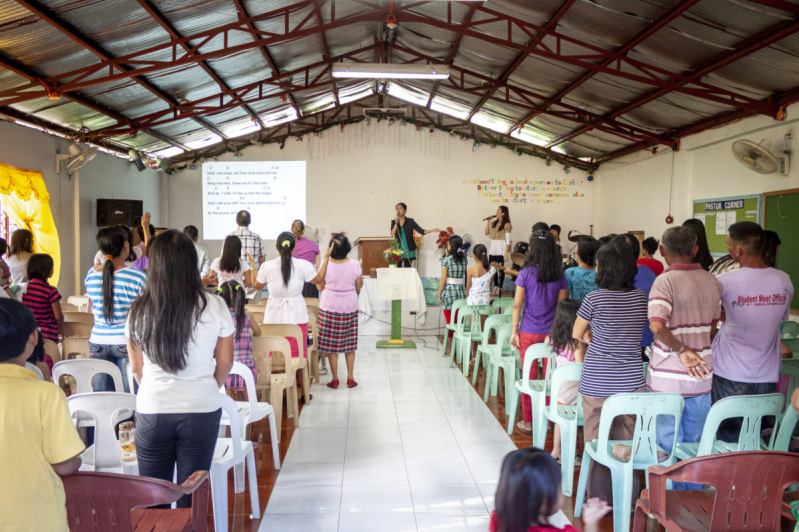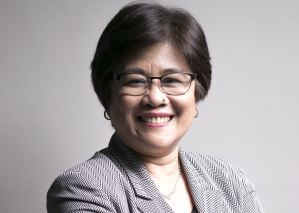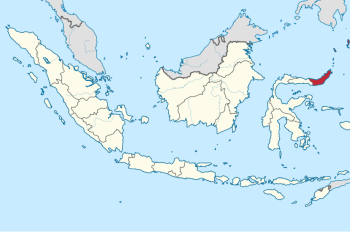
Theological education in Asia is gaining strength as local institutions increasingly take ownership of training future leaders, according to Dr. Theresa Lua, general secretary of the Asia Theological Association (ATA). ATA includes 393 institutions across 33 countries in Asia and beyond and is considered the largest network of theological schools in the evangelical world.
Lua spoke to Christian Daily International during the 19th Global Consultation of the International Council for Evangelical Theological Education (ICETE), held March 3–7 in Tirana, Albania. She discussed Asian educators' efforts to contextualize curriculum, strengthen church partnerships, adapt to online learning and maintain biblical grounding in an evolving world.
As Western influence receded, Asia took ownership of training its own leaders
Reflecting on the developments and changes in Asian theological education over recent decades, Lua notes how the region has increasingly taken ownership of leadership training as Western influence has declined. She recalls a moment at an ATA general assembly when a visiting missionary remarked, “This is so different from many years ago when I used to attend. During that time, a majority of the participants were missionaries. Now I can say these are all mostly Asians.”
This shift, Lua explains, came from a deliberate emphasis on “ownership of our own training.” In the past, theological education in Asia was shaped largely by external mission movements, with curricula imported from the West. Over time, however, faculty members in Asian institutions recognized that these frameworks often lacked cultural relevance and failed to address local realities. This realization sparked a movement to contextualize theological education—leading to a “battle cry” in the 1980s to “train Asians in Asia,” as Lua puts it.
“Of course, one reason for that was because we were sending people to the West for faculty development, and many of them did not come back,” she says. “And also because there was a need for contextualized training because these people who were training in the West, when they came back, they were just passing on what they learned from the West.”
In response, ATA launched the Asia Graduate School of Theology, a consortium of seminaries offering doctoral programs designed to highlight the relevance of the Asian context. Lua acknowledges that Western influence remains, but she is quick to add, “and I am not saying it’s bad.”
One notable downside to the retreat of Western involvement, however, has been a sharp decline in financial support from mission organizations. This shift meant seminaries in Asia had to become more creative and resourceful in developing sustainable sources of income for their ministries.
'Expansion of online programs has made theological education more accessible'

A recent technological shift has significantly shaped this push for creativity, particularly through the rise of online learning and microcredentials. Before the COVID-19 pandemic, there was resistance to the idea, Lua says, “but then the pandemic came and everyone needed to go to Zoom classes.
“Of course, that was the beginning of being exposed to the reality that theological education can be done even online,” Lua recalls. “So now most of the seminaries are doing online education or hybrid.”
While some seminaries are eager to return to full in-person classes, the reality is that not all students are coming back. Lua cites one seminary where the official stance is “back to face-to-face,” yet many students still prefer the flexibility of online learning. “So they have fewer students on the campus,” she notes.
On the upside, the expansion of online programs has made theological education more accessible—especially for students in remote or underserved areas. Online learning is now a lasting feature of seminary life. Still, Lua voices concern over how to nurture holistic, personal discipleship in a primarily virtual environment.
Theological education becomes 'transformational' when local churches partner in mentoring students
To address this challenge, Lua points to the importance of partnerships with local church mentoring programs. She envisions a broader role for theological education—one that not only focuses on academics but also nurtures deeper spiritual formation through these community-based connections.
She emphasizes that there is “no such thing as pure online,” despite the fact that many institutions offer courses over the internet. For her, true discipleship requires in-person involvement. This means academic training must be paired with collaboration between seminaries, churches, and mission organizations to provide holistic spiritual formation and ministry skills. “When that is in place, we see quality online education that is transformational.”
Lua explains that local churches take part in mentoring students, sometimes even before the online coursework begins, due to the emphasis on “field education.” This practical focus also influences student assessments, which include not just academic performance but also feedback from mentors.
“When there is an intentionality in terms of the partnership and the mentoring, then churches are very much involved in that formation aspect,” Lua says because then the seminary and the church need to intentionally work together to achieve the graduate profile.
Regular engagement with church leaders ensures relevance of theological education
When asked how ATA ensures that theological education stays relevant to the needs of churches—especially in rapidly changing cultural contexts—Lua points to several key efforts, including stakeholder studies and regular engagement with church leaders.
She emphasizes that theological education must stay connected to the life of the local church and the diverse cultural settings across Asia. One example of this, she says, is the stakeholders’ study conducted during the accreditation process. As part of this self-study, students and institutions seek feedback from churches and mission organizations to better understand the contexts where graduates will serve.
“It’s a meaningful way to listen to the voices of churches and mission agencies,” Lua explains. It helps institutions understand the challenges on the ground and whether their graduates are actually making an impact.
“We remind schools that their mission is not just for the seminary itself, but for the church and God’s broader mission.” This connection is reinforced during ATA’s annual theological consultations, which focus on real-world issues facing churches. Church leaders are regularly invited to participate in these events to ensure the discussions stay grounded in local realities.
ATA’s triennial general assembly is equally designed to appeal to both theological institutions and church communities. The upcoming theme, Lua notes, is centered on Christlike leadership formation for our turbulent world—a topic chosen precisely because of its broad relevance.
“How do we ensure that with all these changes and realities in the world, we are forming the leaders for the church who can really help the church address these challenges and realities?” Lua reflects.
Therefore, the sessions intentionally feature both theological educators and church leaders. “Every session is designed to include voices from both sides,” she says. “It’s one of the ways we help seminaries stay in touch with what’s really happening in churches—and understand what kind of training is actually needed.”
Being relevant is important, but theological education needs to be biblically grounded
Looking ahead, Lua acknowledges the challenges that persist in traditional Asian hierarchical cultures, where young people are often not given opportunities to lead. However, she notes that this reluctance is beginning to shift, partly energized by global movements such as the recent Lausanne Congress.
For Lua, keeping theological education relevant to both church and society is a central goal—one that demands continuous evaluation of the curriculum and an openness to innovation. “It’s an ongoing process that we should always be willing to make changes,” she says.
She also warns that issues commonly faced in the West are now emerging in Asia. In response, church leaders and seminaries are working to prepare for these changes and to equip others to respond wisely.
“So being grounded in Scripture, but also knowing how to address the challenges that are coming, I think that’s still very much the need,” Lua explains. “Of course, because of social media, it’s so easy for people to access all sorts of videos and training, and I think one problem we see now in Asia is the proliferation of false teachings—and I think that's true anywhere in the world.”
Therefore, she emphasizes the need for a solid biblical foundation in theological education. “Yes, we need to be relevant. There’s so many issues that you can address and the courses that you can offer, but being grounded in Scripture is still very much what we don’t compromise in terms of the curriculum.
“I know there are people who are saying that they don’t need to really have so many of these Bible and theology courses,“ Lua says, but adds: “That may be true, but [perhaps] the issue is how do we teach this in such a way that it is equipping them to really address the issues and challenges.”





